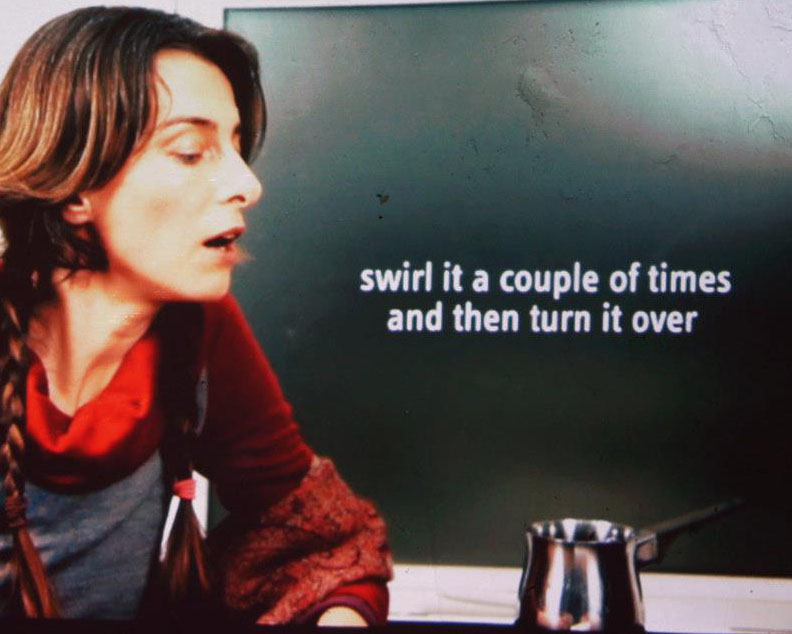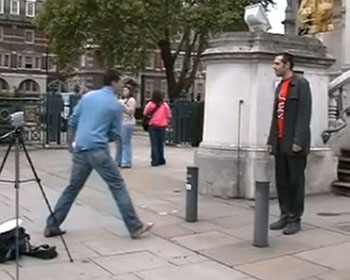- November 28, 2016
- Daniel
- 2710 Views
Slovenian Subtitles
.
Two men sit at a table, sipping coffee and talking fitfully about art. The man on the right is thoughtful and anxious, wondering aloud what art is and whether he can legitimately call himself an artist. The man on the left, a more sceptical and irreverent character who has, apparently, little interest in either of those questions, tries at first to reassure his companion but soon loses patience and finally throws a glass of water in his face.
Exploring the relationship between art, philosophy and football and the way they interact to create new meaning through its confusion.
Socrates was captain of what many people regard as the greatest football team ever never to have won the World Cup. They were the most talented and beautiful team but were beaten by Italy, a much more cynical side. Sócrates was capped sixty times for Brazil between May 1979 and June 1986.
He began playing football professionally in 1974 for Botafogo, but spent the majority of his career (1978 to 1984) with Corinthians in São Paulo, where he became famous for using football to challenge the existing military dictatorship.
- November 2, 2012
- Daniel
- 3050 Views
Bruce McLean (born 1944) is a Scottish Sculptor (performance artist) and painter.
McLean was born in Glasgowand studied at Glasgow School of Art from 1961 to 1963, and at St Martin’s School of Art, London, from 1963 to 1966. At St Martin’s, McLean studied with Anthony Caro. In a reaction to the attitude of the latter he began making sculpture from rubbish.
McLean has gained international recognition for his paintings, ceramics, prints, work with film, theatre and books. McLean was Head of Graduate Painting at The Slade School of Fine Art London He has had numerous one man exhibitions including Tate Gallery in London, The Modern Art Gallery in Vienna and Museum of Modern Art, Oxford. In 1985 he won the John Moores Painting Prize.
In the first scene of Dokumentary, we find Devlin sitting in a darkened room, face obscured in the shadows. With muffled voice, Devlin makes a pathetic plea of victimhood like the reformed criminal in a crime investigation series: ‘I never intended to cause any harm to anybody… It was never my intention to mislead anyone.’ In a society that raises the bar ever higher for personal achievement and ambition, failure becomes an acceptable, even desirable outcome to hopes and dreams, and Devlin’s work relies on our ability to empathise with his constant failures. Yet when, like Devlin, one tries very little to achieve anything, failure becomes a reassuringly inevitability, an effortless alternative to the stressful expectations that result from accomplishing goals.

![In Conversation With Sócrates [2010] In Conversation With Sócrates [2010]](https://old.susakpress.com/wp-content/uploads/2012/11/socrates.jpg)
![Drinking Turkish Coffee With Bruce McLean [2006] Drinking Turkish Coffee With Bruce McLean [2006]](https://old.susakpress.com/wp-content/uploads/2012/11/mclean.jpg)

